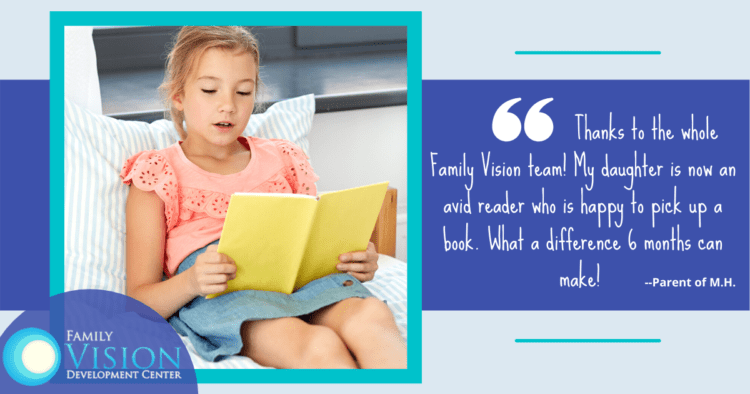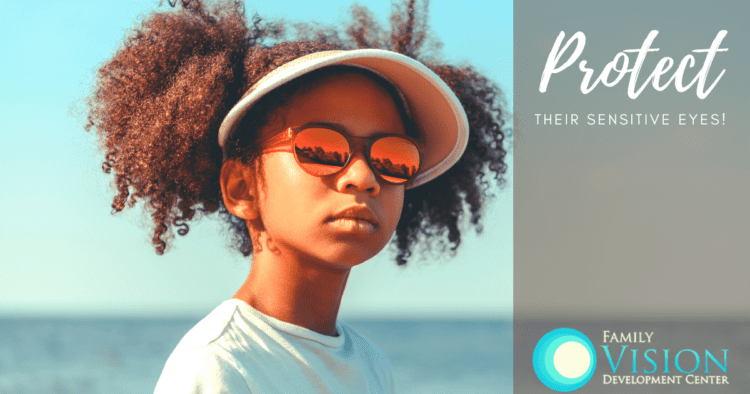

Vision Therapy Can Have Life-Changing Effects on a Child’s Reading Skills
Encouraging your child to read is an important way to improve their overall language skills. Likewise, strong reading skills can help a child succeed in school, as well as build an overall sense of self-esteem. When a child gradually, or suddenly, seems to lose interest in reading, it is wise to look for a vision disorder as a possible cause.
The following vision issues can affect a child’s reading ability. Fortunately, our vision therapy programs can greatly improve, or even eliminate, the symptoms of these conditions.
How Amblyopia Affects Reading
Amblyopia is a common vision condition in children. This disorder occurs when the eyes and brain do not work together properly. As a result, the brain will choose to use only one eye as its primary source of visual information. The other eye will “shut off” and will not be used very often, or at all. Sometimes this will cause the eye to drift in or out, but many times it remains perfectly straight. Other symptoms may include double vision, nearsightedness or farsightedness in one eye, or poor depth perception. All of these, of course, can cause a child’s reading skills to suffer.
Effects of Convergence Insufficiency
Reading can be extremely difficult for a child with convergence insufficiency. This condition is characterized by the inability to move and focus both eyes inward on close objects. Obviously, this would affect an activity like reading. In addition, a child with this disorder can experience eye strain, headaches, dizziness and difficulty concentrating. Vision therapy can help treat convergence insufficiency, thereby allowing a child’s reading skills to flourish.
Visual Processing Disorders Also Affect Reading Skills
When a child suffers from a visual processing disorder, their brain has trouble processing the information it receives. This condition does not affect actual clarity of vision, but rather the brain’s ability to make sense of what the eyes are seeing. For example, letters like b and d might get mixed up. Or when reading, they may read the same line several times, or skip lines completely.
Vision disorders, like those described above, can often go undetected in a standard vision screening. Unfortunately, school-provided screenings are the only vision tests many kids receive at a young age. As such, reading skills can continue to suffer throughout a child’s school years. Our comprehensive vision exam is the best way to detect a wide range of vision disorders. It is also important to note that the earlier an issue is diagnosed the better the chance of a successful treatment. Our vision therapy programs are highly effective at any age. But it is always better to start as soon as possible. Contact our office at 630-862-2020 for more information or to schedule your appointment.

